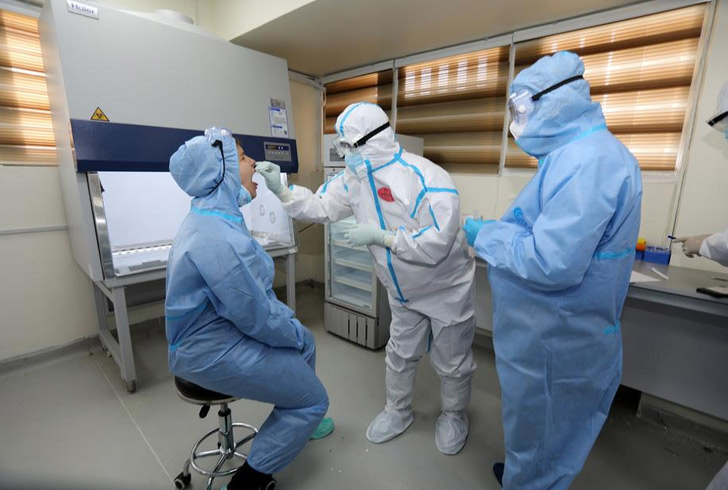RT-PCR Test means real-time reverse transcription polymerase chain reaction test. RT-PCR test procedure is used for detecting nucleic acid from SARS-CoV-2 in nasopharyngeal or oropharyngeal swab specimens from people who have been diagnosed with COVID-19. This is accomplished by utilising fluorescence to monitor the amplification reaction, a technique known as quantitative PCR (qPCR). It allows professionals to immediately review the outcomes. One of the most extensively utilised methods for detecting COVID-19 is RT-PCR.
RT-PCR is a laboratory technique involving reverse transcription (RT) of viral RNA into DNA and then this Complementary DNA is amplified by the help of another technique called polymerase chain reaction (PCR). It helps to detect even a very low concentration of virus at the time by amplification of DNA even when symptoms of the disease are not visible

What is the RT-PCR test procedure?
Sample collection is done using a swab to collect respiratory material found in your nose. he RT-PCR test identifies viral particles in patients using nasopharyngeal swabs, oropharyngeal swabs, throat swabs, and nasal swabs.
With the use of an RT-PCR test kit, trained specialists perform the test. The swab is sealed in a tube and shipped to a covid-19 testing laboratory after collection.
It also involves the extraction of Covid-19 virus genetic material (RNA). The PCR stage subsequently employs a PCR machine called a thermal cycler to amplify the genetic material of the SARS-CoV-2 virus. If the virus is present, one of the probes/chemicals creates a fluorescent light throughout this procedure
When should you get the test done
If you experience any one of the symptoms of corona virus, It is advisable to get the Covid-19 RT-PCR test done.
The most common Covid-19 symptoms are fever, dry cough, and fatigue. Headache, Chills, disorientation, Muscle or joint discomfort, Loss of taste or smell, Nasal congestion, Conjunctivitis (commonly known as red eyes), Sore throat, Nausea or vomiting, different types of skin rash, or Diarrhea are some of the less common symptoms that may afflict some people.
Irritability, anxiety, depression, diminished consciousness, and sleeping difficulties are some of the mental symptoms that an infected person may experience.
People of all ages should seek medical attention right away if they have a fever and/or a cough that is accompanied by trouble breathing or shortness of breath, chest pain or pressure, or loss of speech or movement. If at all possible, contact your health care provider, hotline, or health facility first so that you can be directed to the appropriate clinic.
Source: Internet

















